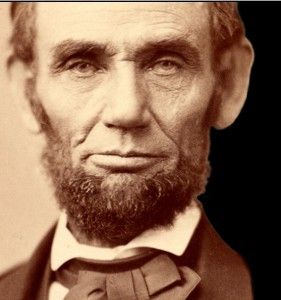 The news of the Emancipation Proclamation has now spread throughout the North, as well as much of the South. Southern whites–including Southern Baptist newspaper editors–largely ignore the news, knowing that Abraham Lincoln‘s words are effectively meaningless as long as the Confederacy exists. Some Southern slaves hear whispers of a freedom announced from far away, hoping that one day the words might come true for them.
The news of the Emancipation Proclamation has now spread throughout the North, as well as much of the South. Southern whites–including Southern Baptist newspaper editors–largely ignore the news, knowing that Abraham Lincoln‘s words are effectively meaningless as long as the Confederacy exists. Some Southern slaves hear whispers of a freedom announced from far away, hoping that one day the words might come true for them.
Rejoicing among free blacks and abolitionists of the North continues. Today the New York Times publishes its initial story about the Proclamation.
President LINCOLN’S proclamation, which we publish this morning, marks an era in the history, not only of this war, but of this country and the world. It is not necessary to assume that it will set free instantly the enslaved blacks of the South, in order to ascribe to it the greatest and most permanent importance. Whatever may be its immediate results, it changes entirely the relations of the National Government to the institution of Slavery. Hitherto Slavery has been under the protection of the Government; henceforth it is under its ban. The power of the Army and Navy, hitherto employed in hunting and returning to bondage the fugitive from service, are to be employed in maintaining his freedom whenever and wherever he may choose to assert it. This change of attitude is itself a revolution.
President LINCOLN takes care, by great precision in his language, to define the basis on which this action rests. He issues the Proclamation “as a fit and necessary war measure for suppressing the rebellion.” While he sincerely believes it to be an “act of justice warranted by the Constitution,” he issues it “upon military necessity.” In our judgment it is only upon that ground and for that purpose that he has any right to issue it at all. In his civil capacity as President, he has not the faintest shadow of authority to decree the emancipation of a single slave, either as an “act of justice” or for any other purpose whatever. As Commander-in-Chief of the army he has undoubtedly the right to deprive the rebels of the aid of their slaves,–just as he has the right to take their horses, and to arrest all per-sons who may be giving them aid and comfort,–“as a war measure” and upon grounds of military necessity.
It may seem at first sight a matter of small importance in what capacity the act is done. But its validity may, in the end, depend upon that very point. Sooner or later his action in this matter will come up for reviewal before the Supreme Court; and it is a matter of the utmost importance to the President, to the slaves, and to the country, that it should come in a form to be sustained.…
What effect the Proclamation will have remains to be seen. We do not think that it will at once set free any considerable number of slaves beyond the actual and effective jurisdiction of our armies. It will lead to no immediate insurrections, and involve no massacres, except such as the rebels in the blindness of their wrath may themselves set on foot. The slaves have no arms, are without organization, and in dread of the armed and watchful whites. Besides, they evince no disposition to fight for themselves so long as they see that we are fighting for them. They understand, beyond all question, that the tendency of this war is to give them freedom, and that the Union armies, whatever may be their motive, are actually and practically fighting for their liberty. If the war should suddenly end,–if they should see the fighting stop, and the Constitution which protects Slavery restored to full vigor in the Slave States, their disappointment would vent itself in the wrathful explosion of insurrection and violence. But so long as the war continues, we look for nothing of that kind. Whenever our armies reach their immediate vicinity, they will doubtless assert their freedom, and call upon us to “recognize and maintain” it. Until then, they will work for their masters and wait for deliverance.
Meanwhile, the travails of war continue for many Baptist churches of the Confederacy. In the Murfreesboro, Tennessee area, the Battle of Stones River, underway for the past four days, is winding down. Although Confederate forces had initially evidenced the upper hand in the battle, the conclusion of the war is not faring well for the rebels. The Baptist Female Institute and the Murfreesboro Baptist Church, now serving as field hospitals, are scenes of carnage, death and chaos. Fighting continues today, but Confederate General Braxton Bragg realizes that his efforts are futile. Knowing that Union General William Rosecrans will soon receive reinforcements, Bragg retreats late at night under the cover of darkness. Withdrawing through Mufreesboro, the Confederates march further southward, abandoning the city to federal occupation.
The new year thus opens unkindly for the Confederacy, both in the passage of the Emancipation Proclamation and the loss of Murfreesoboro.
Sources: “The President’s Proclamation,” New York Times, January 3, 1863 (link); Shirley Farris Jones, “Battle of Murfreesboro,” Murfreesboro Post, December 27, 2012 (link); “Battle of Stones River” (link)


